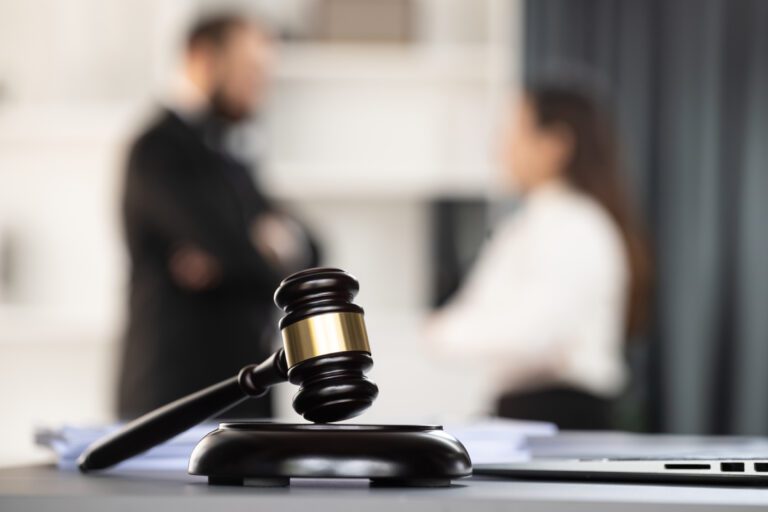Breaktime Balancing Act: Navigating Attorney-Witness Discussions in Depositions
By Brian R Iverson
December 20, 2023

Brian R. Iverson is a Member of the Washington, DC office of Bass, Berry & Sims PLC, where he represents businesses in a wide range of civil litigation matters. Iverson wrote additional analysis relating to private, off-the-record conferences between an attorney and a witness-client in this article.
Published in Today's General Counsel, January 2024
Attorneys and witness-clients are frequently tempted to discuss testimony during deposition breaks. The recent increase in remote depositions during the COVID-19 pandemic has made it even more tempting to communicate during the deposition, for example, by exchanging text messages. However, attorneys and litigants are often surprised to learn that the rules governing these communications vary greatly by jurisdiction.
Here are several common approaches and communication guidelines counsel should consider when conducting depositions in federal proceedings.
No-Consultation Rules
“No-consultation” rules first appeared in the 1980s. The strictest versions prohibit attorneys and their witness-clients from engaging in any private, off-the-record conferences during deposition breaks, except for the purpose of deciding whether to assert a privilege. The primary rationale is that depositions are meant to record a witness’s testimony as to the facts. The attorney’s job is to frame the facts in a manner favorable to the client, not to coach the witness on how to testify. Penalties for violating no-consultation rules include monetary sanctions and waiver of the attorney-client privilege.
Criticism of No-Consultation Rules
No-consultation rules have been criticized for going further than necessary to address witness coaching. Existing ethics rules already prohibit coaching, and critics argue that no-consultation rules impinge on a civil litigant’s right to hired counsel. There are many appropriate reasons for an attorney to communicate with a witness-client, such as to ensure the client understands a question.
Additionally, attorneys are ethically required to take remedial measures for false testimony, and the first step under the American Bar Association’s Model Rules of Professional Conduct is “to remonstrate with the client confidentially, advise the client of the lawyer’s duty of candor to the tribunal and seek the client’s cooperation with respect to the withdrawal or correction of the false statements or evidence.” No-consultation rules prohibit an attorney from fulfilling this ethical obligation if the witness testifies incorrectly.
Federal Courts Take Various Approaches
Federal courts have taken a wide range of approaches to regulate private, off-the-record conferences. District court orders on the issue are rarely challenged on appeal, and the authority is becoming more splintered over time. The U.S. Court of Appeals for the Seventh Circuit is the only federal appellate court to address the issue directly, holding that it was “not appropriate or professional” for an attorney to engage in private conferences with the witness during a deposition break. Nonetheless, the Seventh Circuit found that the district court did not abuse its discretion in declining to impose sanctions for the misconduct.
District courts in the Third Circuit usually follow the strict no-consultation approach. District courts in the Ninth Circuit typically apply a less restrictive rule, under which an attorney may discuss the testimony with a witness-client during a recess the attorney did not request, provided the discussion does not involve coaching. Still, even in these circuits, the authorities are not uniform and district courts in other circuits have taken a wide variety of other approaches to address private, off-the-record conferences.
Guidelines for Attorney and Witness-Client Communications
Unless uniformity develops through appellate decisions or an amendment to the Federal Rules of Civil Procedure, outside and in-house counsel should consider four guidelines for private, off-the-record conferences during deposition recesses:
- An attorney and witness-client may not communicate or request a break while a question is pending, except for the purpose of deciding whether to assert a privilege. Discussions regarding privilege are permitted even under the most restrictive no-consultation rules.
- An attorney may not coach a witness by telling the witness what to say or how to testify, whether before a deposition or during a deposition recess.
- An attorney should research the key authorities governing private, off-the-record conferences during deposition recesses in the applicable jurisdiction before defending a deposition.
- The same restrictions on communicating with a witness-client during an in-person deposition will apply to communications by text message, instant message, email, or other means during a remote deposition.
Although it is natural for an attorney and witness-client to want to discuss the testimony during deposition recesses, doing so can expose the attorney and client to sanctions in some jurisdictions. By following these four guidelines, attorneys can minimize the risk to themselves, their law firms, and their clients.
Must read intelligence for general counsel
Subscribe to the Daily Updates newsletter to be at the forefront of best practices and the latest legal news.
Daily Updates
Sign up for our free daily newsletter for the latest news and business legal developments.




